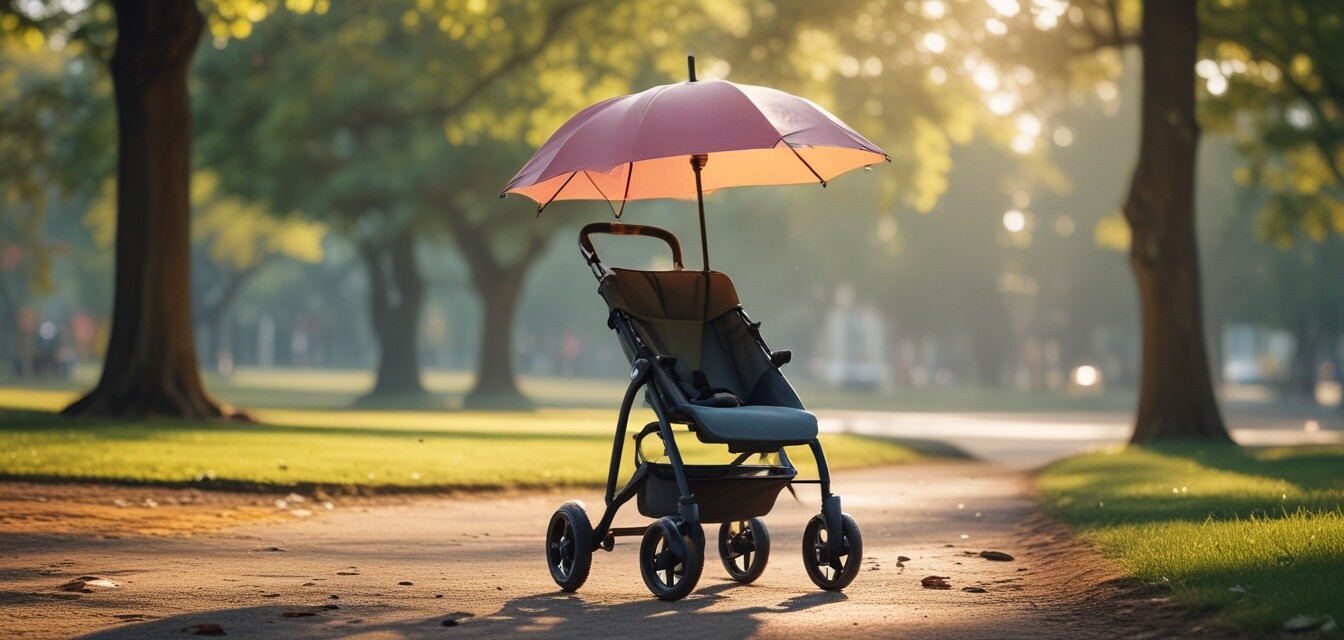
The pros and cons of umbrella strollers
Key Takeaways
- Umbrella strollers are lightweight and easily foldable, making them perfect for travel.
- They typically have a smaller carrying capacity and limited features compared to other stroller types.
- When choosing an umbrella stroller, consider your lifestyle, terrain, and essential features.
As a parent, selecting the right stroller for your child can be a daunting task. Among the vast options available, umbrella strollers stand out for their lightweight design and portability. In this guide, we will dive into the pros and cons of umbrella strollers, helping you make an informed decision that aligns with your family's needs and lifestyle.
What Are Umbrella Strollers?
Umbrella strollers are known for their simple design and collapsible frames. They are named for their shape when folded, resembling an umbrella. Typically, these strollers are lightweight and designed for short outings, making them popular among parents for their convenience.
Advantages of Umbrella Strollers
Pros
- Lightweight: Umbrella strollers are typically very light, making them easy to carry.
- Compact: Their design allows them to fold up easily, fitting into tight spaces like car trunks or small storage areas.
- Affordable: Umbrella strollers often come at a lower price point compared to more feature-rich models.
- Ease of Use: Simple designs make these strollers intuitive to operate, even for first-time users.
- Versatile: Ideal for quick trips to the store or park, making them a great travel companion.
Cons
- Limited Features: Most umbrella strollers lack additional features such as reclining seats and storage space.
- Shorter Lifespan: Due to their lightweight construction, they may not be suitable for long-term, daily use.
- Stability Issues: Some models can be less stable than traditional strollers, particularly on uneven terrain.
- Less Comfort: Limited cushioning can lead to discomfort during longer outings.
- Safety Concerns: Some models might lack advanced safety features; thus, careful selection is essential.
Comparing Umbrella Strollers to Other Types
| Feature | Umbrella Stroller | Convertible Stroller | Jogging Stroller |
|---|---|---|---|
| Weight | Lightweight | Medium to Heavy | Heavy |
| Portability | Highly portable | Less portable | Less portable |
| Comfort | Basic comfort | High comfort | High comfort |
| Versatility | Limited | Versatile | Specific for jogging |
| Cost | Affordable | Higher price | Higher price |
Tips for Choosing the Right Umbrella Stroller
Beginner's Section
- Test the weight: Make sure you can comfortably lift and carry the stroller.
- Check ease of folding: Practice folding and unfolding the stroller to ensure it’s user-friendly.
- Examine safety features: Look for strollers with a secure harness and sturdy brakes.
- Consider your needs: Assess how often you will use the stroller and the types of outings.
- Read reviews: Look for feedback regarding comfort and durability from other parents.
Conclusion
Choosing the right stroller for your family is a significant decision. While umbrella strollers offer unique benefits such as portability and affordability, it's essential also to consider the potential drawbacks. We encourage you to explore other stroller options such as convertible strollers, jogging strollers, and lightweight strollers to ensure you find the perfect fit for your lifestyle.
Remember, the best stroller is one that meets your individual needs while providing a secure, comfortable environment for your child. For more insights into different stroller types, check out our buying guides and stay informed about the latest products in the market by visiting our news and trends section.